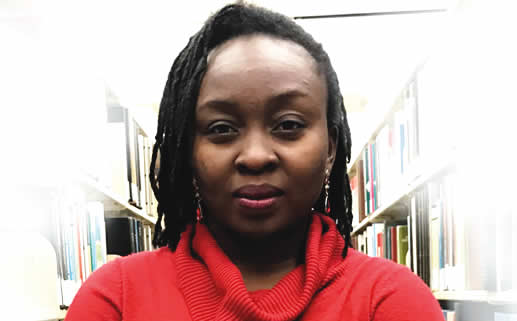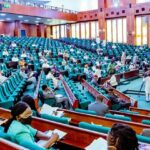
If the idea of crowdfunding for former governor Peter Obi to contest the presidential election works, it will be one of the most decisive changes in Nigerian political history. Proposed by data analyst and social advocate, Segun Onigbinde, crowdfunding is a relatively uncharted terrain in Nigeria’s recent politics. Translating the idea into concrete action needs to be worked out. Beyond the intricacies of the logistics, it will also take a lot of imagination to persuade the average Nigerian, especially in these hard times, to invest some money in their own democracy.
In a country where people have become inured to the vice of being bribed to vote in an election, asking them to put their money into an election is a radical departure from how we know to do politics. Crowdsourcing funds for elections in a culture where exchanging votes for naira has been normalised is a considerable challenge. What you are basically asking is for people to institute a new culture of a democracy that will truly be about them and not the bunch of self-reproducing and self-serving moneybags who dominate the political space. To achieve that feat will entail getting people to trust in the government and challenge its officials in a way we have never quite learned to do.
Success will be arduous but the idea of crowdsourcing funds is nevertheless a path well worth trying. Elections, anywhere, are costly. Funding them will always be a source of grief for poorer countries like Nigeria. At every level, elections gulp an immeasurable amount of money that nobody can fund from their honest pockets. Nobody. Regarding elections, there are at least three reasons corruption in Nigeria will always be rife.
One, every politician who manages to get into power starts out by trying to recoup all the investments that brought them into that office. The amount of money they commit to their elections makes them self-justify their self-reimbursement through looting public funds. Two, they must also rack up money for future elections. In Nigeria especially, the average politician fears nothing more than being out of power and they confront the spectre of their looming political irrelevance by looting enough to contest yet another election. Three, stealing from the public is also an imperative of maintaining a lifestyle of power and influence. In addition to their lavish life at society’s expense, they also need enough money to sponsor other candidates to continuously guarantee their social relevance. Crowdsourcing funds for a candidate might ameliorate some of these problems.
Now, while the very idea of crowdsourcing for a political candidate is a laudable one, it will take far much more to dislodge the powers and principalities that dominate Nigerian politics. That point too needs to be highlighted so that we do not oversimplify how money translates to votes. Money will go a long way in the quest to defeat our existing and perennially unimaginative leaders but those who want them gone must also show up on election day. Without an avalanche of votes, the political machinery of the dominant politicians cannot be beaten.
We can all recall how much moral mileage the APC gained at the expense of their biggest contender, the PDP, by complaining that they plundered the national purse to fund the 2015 elections. For a while, this was the biggest contribution of Vice President Yemi Osinbajo to public discourse. He kept hawking the stale tale of PDP corruption without demonstrating how his own party had instituted a better practice of campaign financing. The nearest they got to showing popular support through crowdfunding for their campaign was in 2015, which even turned out to be a mere parody. We will all recall how they made an ostentatious show off while collecting the life savings of children and aged pensioners who thought they were giving to a transformative government. The APC could not sustain that farce and they have been unravelling since. Every election they have had since 2015 have been financed through the same corrupt means for which they criticised their predecessors. As it is now apparent to those who are no longer in denial, the APC lot was never interested in doing things differently. They are invested in keeping existing structures.
While not novel, crowdsourcing funds for elections is an idea that can indeed change our political fortunes in reasonable ways. Often, the less-monied-but-promising candidates start out disadvantaged relative to their rich and corrupt counterparts because those ones have spent a considerable amount of time in the buildup to the election, engaging in the questionable activity sometimes euphemistically described as “building consensus.” Already, you must have heard the familiar echo of supporters saying certain aspirants for public office will fare better because of their “consensus-building” activities. What they truly mean is that such aspirants are already feeding the vast political machinery that produces electoral victories in Nigeria.
Elections are not won by strident debates or fancy posters or the cute jingles that target a section of the populace who dominate the media spaces. The winning votes mostly come from the pyramidal structure of the local constituents who make up various grassroots organisations. Each group typically converges around a charismatic and influential leader whose job is to “deliver” their constituency to a political party. Thus, “consensus-building” is mostly a generation of the transactional relationships between the politicians who run for office and the vassals at various levels who mobilise the constituents for them.
When people praise a politician for having a national structure, what they are saying is that from one election cycle to the other, such a person keeps this organisational structure of political retailership well-oiled. Think of this structure as running a feudal system, except what is transacted between the parties is political capital. The ability to continuously hold all the constituent parts of the pyramid together defines the scope of a politician’s influence.
The transactional exchange is highly professionalised because the various local leaders who facilitate the exchanges demonstrate a degree of managerial prudence that extracts the best value for votes. Also, considering that the people who comprise these groups can be fickle and easily lured by other bidders, such community leaders must have a reputation for maintaining their loyalty through peer pressure, threats of physical violence, diabolism or other means of persuasion.
During an election season, the leaders with the most viable of these organisations get solicited by the politicians who pay them to deliver their constituency. Lots of money exchange hands in the process since these retailers are largely undiscriminating on the grounds of either ideology or aspirant integrity. They take from any candidate who offers and anyone who comes visiting with empty hands might as well have bottomed out before the election itself. On election day, money must still be distributed among all these groups otherwise they would not be obliged to leave their homes. Every step of the process involves an immense amount of money, the kind that requires a bullion van to drive into a private residence on election day. The candidate who eventually succeeds at the polls is often the one that spent and spent until they outspent their closest opponent.
Anyone who knows Nigerian politics enough is also aware that our electoral process is thoroughly corrupt. Even worse, this corruption has been so totally imbricated into aspects of our social culture and therefore difficult to overturn. That is why crowdfunding efforts must be accompanied by a voter mobilisation powerful enough to outvote the entrenched system of paid votes. The path out of the morass of an election defined by heavy bribery is not going to be an easy one.
For far too long, the whole point of democracy easily gets reduced to electioneering. The potential gain of democracy that should accrue social progress and flourishing is too cheaply sacrificed to the quest for power. Elections have become a formalised process of ushering in and legitimising preselected candidates. Those practises negate the ideals of having a government of the people by the people. Over time, this undemocratic democracy has made people cynical to the point that elections are all about cashing out for whatever amount their votes are deemed to be worth, while they go home to await the next election. Inducing such people to give their money and their votes without immediate gratification will take nothing short of a miracle.
Copyright PUNCH.
All rights reserved. This material, and other digital content on this website, may not be reproduced, published, broadcast, rewritten or redistributed in whole or in part without prior express written permission from PUNCH.
Contact: [email protected]





